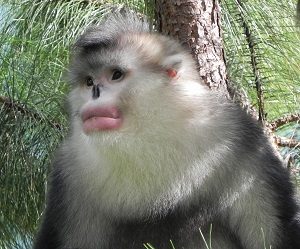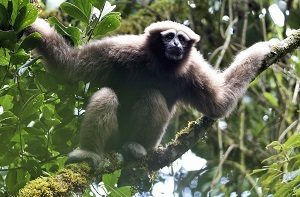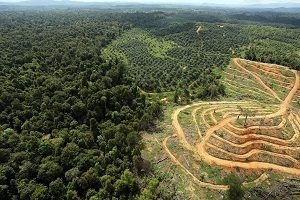A Durham University academic has contributed to an article warning that many species of primates are at risk of extinction. Primates are the group of mammal species that includes gorillas, chimps, monkeys, lemurs and humans.
A team of international experts from the USA, Europe, Latin America, Asia and Africa collaborated to write the article Impending extinction crisis of the world’s primates: Why primates matter.
The article, published in the journal Science Advances, states that 60% of known primate species worldwide are thought to be in danger of dying out and that 75% have declining populations.


The article points out that primates play an essential role in tropical biodiversity, as well as contributing to the regeneration of damaged forests and the health of ecosystems. Primates also play an important part in the livelihoods, cultures and religions of many societies around the globe.
Professor Jo Setchell, from Durham University’ Department of Anthropology, who was one of the authors of the article, said, “This is a dire situation.”
“We must prevent a mass extinction of our closest biological relatives. And it is possible.”
“If we can reduce the unsustainable pressures we are putting on primates and their habitats, and make this a global priority, we can stop this downward spiral towards the destruction of these irreplaceable and fascinating species.”
“I can’t imagine a world without primates, but if we don’t act now, we will soon be faced with one.”


As primates are humanity’s closest relatives, they can give us valuable insights into human evolution, biology and behaviour, as well as into the diseases that afflict us.
But the authors of the article say many of these creatures could be killed off due to threats to their habitats. The forests where many primates live are at risk from industrial agriculture, cattle ranching, logging, drilling for oil and gas, road building, dam construction and mining.


Professor Setchell went on, “This situation will only get worse unless we take immediate action.”
“Most primates live in regions with high levels of human poverty and inequality so we need to take immediate action to improve health and access to education, develop sustainable land-use initiatives, and preserve traditional livelihoods that can contribute to food security and environmental conservation.”
“We know all this. It’s time to put it in place.”
“If we continue to degrade habitats to the point where they are unsustainable for our primate relatives, these habitats will eventually become unsustainable for us too.”


The authors of the article say the general public can help by:
- Not buying tropical timber
- Not buying products containing palm oil, as its production destroys tropical forests
- Thinking about the environmental impacts of all our purchases
- Not keeping wild animals as pets
- Supporting efforts to reduce poverty so people are not tempted to hunt primates for food


























